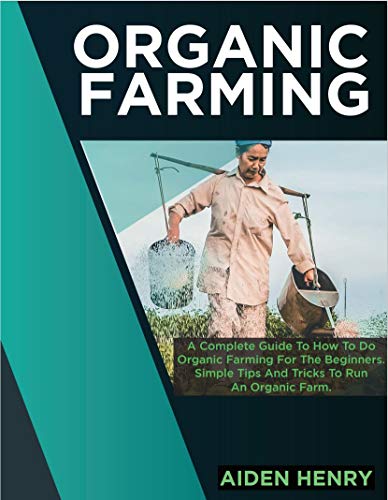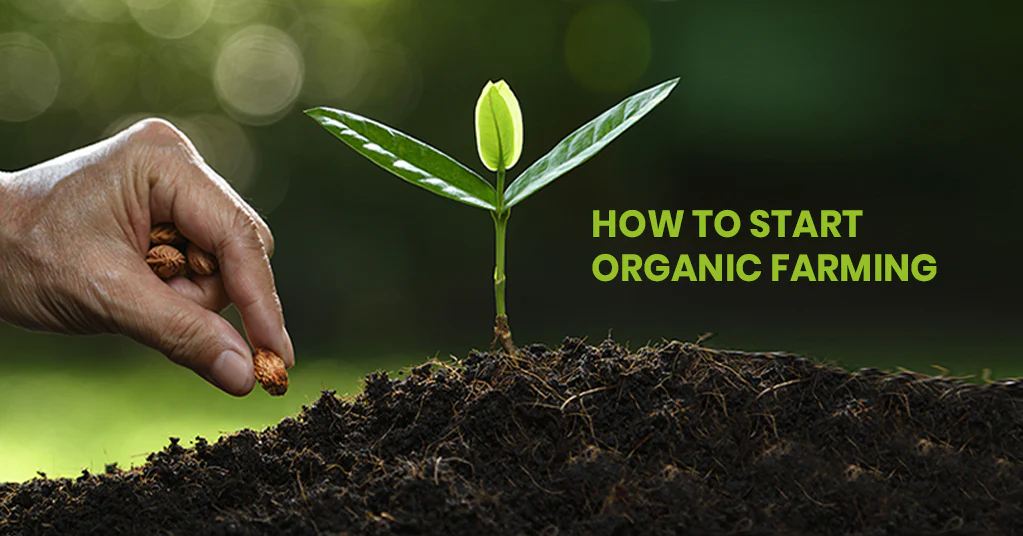
Organic farming tips are essential for anyone looking to succeed in sustainable agriculture while adhering to organic principles. At the heart of these tips is a commitment to enhancing soil health, managing pests naturally, and implementing efficient practices that support long-term sustainability. These organic farming tips are not just about increasing productivity; they are about creating a resilient farming system that benefits both the environment and the farm’s economic viability.

One crucial aspect of organic farming tips is focusing on soil health. Healthy soil is the foundation of a successful organic farm. Organic farmers should consider incorporating compost and organic matter into their soil regularly. Composting kitchen scraps, animal manure, and plant residues helps enrich the soil with essential nutrients, improves soil structure, and promotes beneficial microbial activity. This practice aligns with organic farming tips that emphasize the importance of maintaining soil fertility without synthetic fertilizers. Additionally, practicing crop rotation is one of the most effective organic farming tips for maintaining soil health. By rotating different types of crops, farmers can prevent nutrient depletion, reduce pest and disease buildup, and improve soil structure.
Another key set of organic farming tips involves managing pests and diseases without relying on chemical pesticides. Integrated Pest Management (IPM) is a holistic approach that combines multiple strategies to control pests naturally. Organic farming tips for pest management include introducing beneficial insects, such as ladybugs or predatory mites, that prey on common pests like aphids and spider mites. Utilizing companion planting, where certain plants are grown together to repel pests or attract beneficial insects, is another valuable tip. For instance, planting marigolds among vegetables can deter nematodes, while planting basil near tomatoes can help repel hornworms. These natural methods reduce the need for chemical interventions and contribute to a healthier farm ecosystem.
Weed management is another area where organic farming tips are crucial. Weeds compete with crops for nutrients, water, and sunlight, so controlling them is essential for optimal growth. Organic farming tips for weed control include using mulches, such as straw or grass clippings, to suppress weed growth and retain soil moisture. Mechanical weeding tools, such as hoes and weeders, can be employed to manually remove weeds without disturbing the soil too much. Cover crops, which are grown during the off-season, can also help suppress weeds and improve soil fertility. By integrating these strategies, organic farmers can manage weeds effectively while supporting soil health and sustainability.
Water management is a vital component of organic farming tips, as efficient water use is critical for both crop health and environmental conservation. Organic farmers should consider implementing drip irrigation systems, which deliver water directly to the plant roots and reduce evaporation and runoff. Rainwater harvesting systems can also be beneficial for capturing and storing rainwater for irrigation purposes. Additionally, incorporating practices that enhance soil water retention, such as using organic mulches or building soil organic matter, can help optimize water use and reduce the need for additional irrigation.
When it comes to organic farming tips, it’s also important to consider the economic aspects of running an organic farm. While organic farming can involve higher upfront costs, such as purchasing organic seeds or investing in specialized equipment, it often offers opportunities for premium pricing and access to niche markets. Organic farmers can capitalize on the growing consumer demand for sustainably produced food by marketing their products effectively and highlighting their commitment to environmental stewardship. Understanding the economics of organic farming and developing a solid business plan can help ensure long-term profitability and success.
Educational resources and community support are invaluable organic farming tips for anyone starting or improving their organic farm. Farmers should seek out local agricultural extension services, workshops, and online resources to stay informed about best practices and emerging trends in organic farming. Networking with other organic farmers and participating in community groups can provide additional support, share knowledge, and foster collaboration. By staying engaged with the broader organic farming community, farmers can continually improve their practices and adapt to new challenges.
In summary, organic farming tips encompass a wide range of practices designed to promote soil health, manage pests and weeds, optimize water use, and ensure economic viability. By focusing on these essential areas, organic farmers can build a resilient and sustainable farming system that benefits both the environment and their bottom line. Implementing these tips effectively requires ongoing learning, adaptability, and a commitment to organic principles. As the organic farming movement continues to grow, these tips will remain crucial for achieving success in sustainable agriculture.









